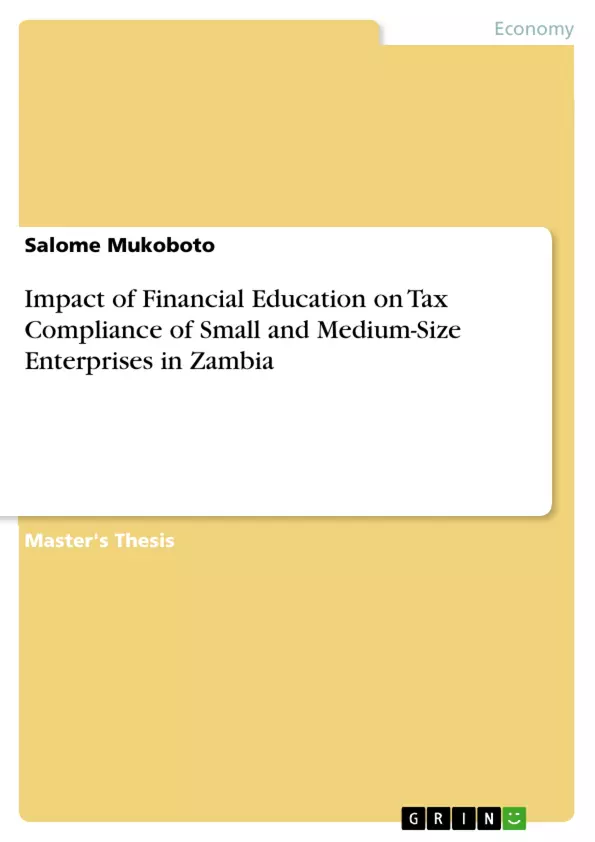Small and medium size enterprises (SMEs) are all around us. According to the International Trade Credit Survey of 2018, SMEs in Zambia represent 70 percent of Gross Domestic Product(GDP), 88 percent of employment and contribute 97 percent of all businesses in the economy. From a small barbershop around the corner to a woman selling tomatoes at the street corner, the categorization is the same. Like many larger enterprises, small businesses exist with a view to make a profit.
The reason for this study is to give attention to these numerous SMEs. A broader analysis will enable various stakeholders to have a clearer picture of what exists on the ground. The importance of SMEs cannot be stressed enough. From providing a source to exchange skills to ensuring that big corporations do not take advantage of the masses, the existence of SMEs remains vital in the world today. SMEs play a role in the manufacture of raw materials required by big corporations. Further, they play a significant role in the supply chain by ensuring that finished products are moved to and from even targeting the most remote areas of the country.
Inhaltsverzeichnis (Table of Contents)
- Chapter 1 Abstract
- Chapter 2 Introduction
- Chapter 3 Relevance to CBU's body of Research
- Chapter 4 Literature Review
- 4.1 Review and Hypothesis Development
- Chapter 5 Research Methodology
- 5.1 Research Method and Sample Selection
- 5.2 Data Analysis and Results
- Chapter 6 Observation and Analysis
- Chapter 7 Summary
- Chapter 8 Research Limitations
Zielsetzung und Themenschwerpunkte (Objectives and Key Themes)
This study aims to analyze the impact of financial education on tax compliance of small and medium-sized enterprises (SMEs) in Zambia. The research seeks to understand the relationship between the level of financial literacy among SME owners and their adherence to tax regulations. The study will contribute to the existing body of knowledge on SME development in Zambia by providing insights into the key factors influencing tax compliance and highlighting the role of financial education.
- Impact of financial education on tax compliance among SMEs
- Key factors influencing tax compliance behavior in SMEs
- Challenges faced by SMEs in accessing and utilizing financial education
- The role of government and other stakeholders in promoting financial education among SMEs
Zusammenfassung der Kapitel (Chapter Summaries)
- Chapter 1: This chapter provides an introduction to the study and presents the research problem. It also highlights the importance of SMEs in Zambia's economy and the need for research on financial education and tax compliance.
- Chapter 2: This chapter presents a comprehensive overview of the theoretical frameworks and literature related to financial education and tax compliance. It analyzes previous studies and research findings on the topic, providing a foundation for the current study.
- Chapter 3: This chapter focuses on the research methodology employed in the study. It explains the research design, sampling methods, data collection techniques, and data analysis procedures.
- Chapter 4: This chapter presents the findings of the research. It analyzes the collected data and explores the relationship between financial education and tax compliance among SMEs in Zambia.
- Chapter 5: This chapter discusses the key observations and analysis of the research findings. It interprets the results in the context of existing literature and provides insights into the implications of the study.
- Chapter 6: This chapter summarizes the main findings of the study and outlines the key contributions to the body of knowledge on financial education and tax compliance. It also highlights the limitations of the study and suggests areas for future research.
Schlüsselwörter (Keywords)
This research focuses on the impact of financial education on tax compliance, specifically within the context of small and medium-sized enterprises (SMEs) in Zambia. Key concepts explored include financial literacy, tax regulations, SME development, economic growth, and government policies. The study utilizes a quantitative approach, examining data related to SME characteristics, financial knowledge, and tax compliance behavior.
Frequently Asked Questions
What is the significance of SMEs in Zambia's economy?
SMEs represent 70% of Zambia's GDP, 88% of employment, and constitute 97% of all businesses in the country.
How does financial education impact tax compliance for SMEs?
The study analyzes the relationship between financial literacy levels among owners and their adherence to tax regulations, suggesting that education improves compliance.
What are the main challenges faced by Zambian SMEs regarding taxes?
Challenges include limited access to financial education and a lack of understanding of complex tax regulations, which affects their growth and compliance.
What role do SMEs play in the supply chain?
They are vital for manufacturing raw materials for big corporations and ensuring that finished products reach even the most remote areas of Zambia.
What methodology was used in this research?
The research employed a quantitative approach, analyzing data from SME characteristics and financial knowledge to test hypothesis developments.
- Citar trabajo
- Salome Mukoboto (Autor), 2023, Impact of Financial Education on Tax Compliance of Small and Medium-Size Enterprises in Zambia, Múnich, GRIN Verlag, https://www.grin.com/document/1349616



